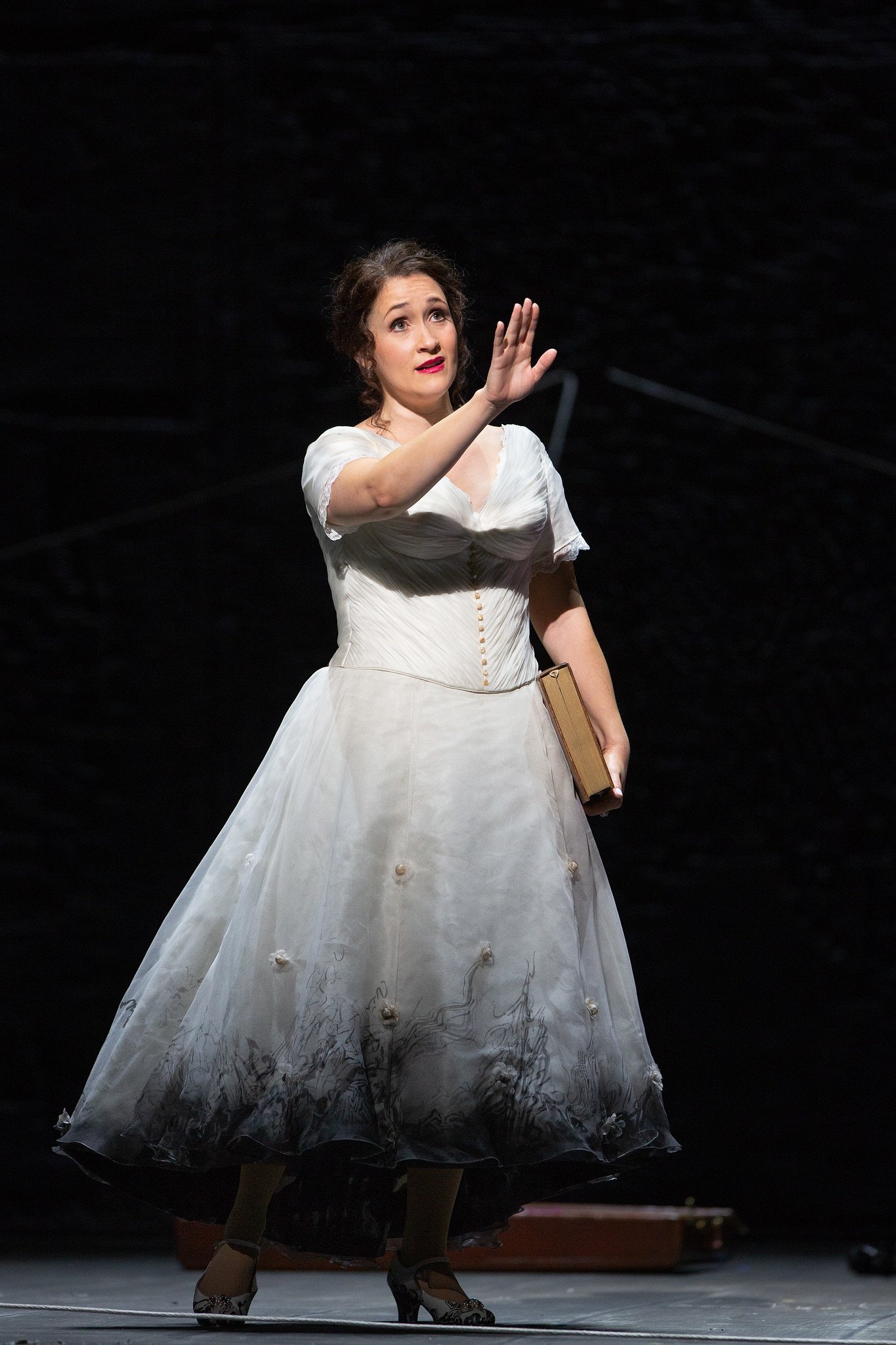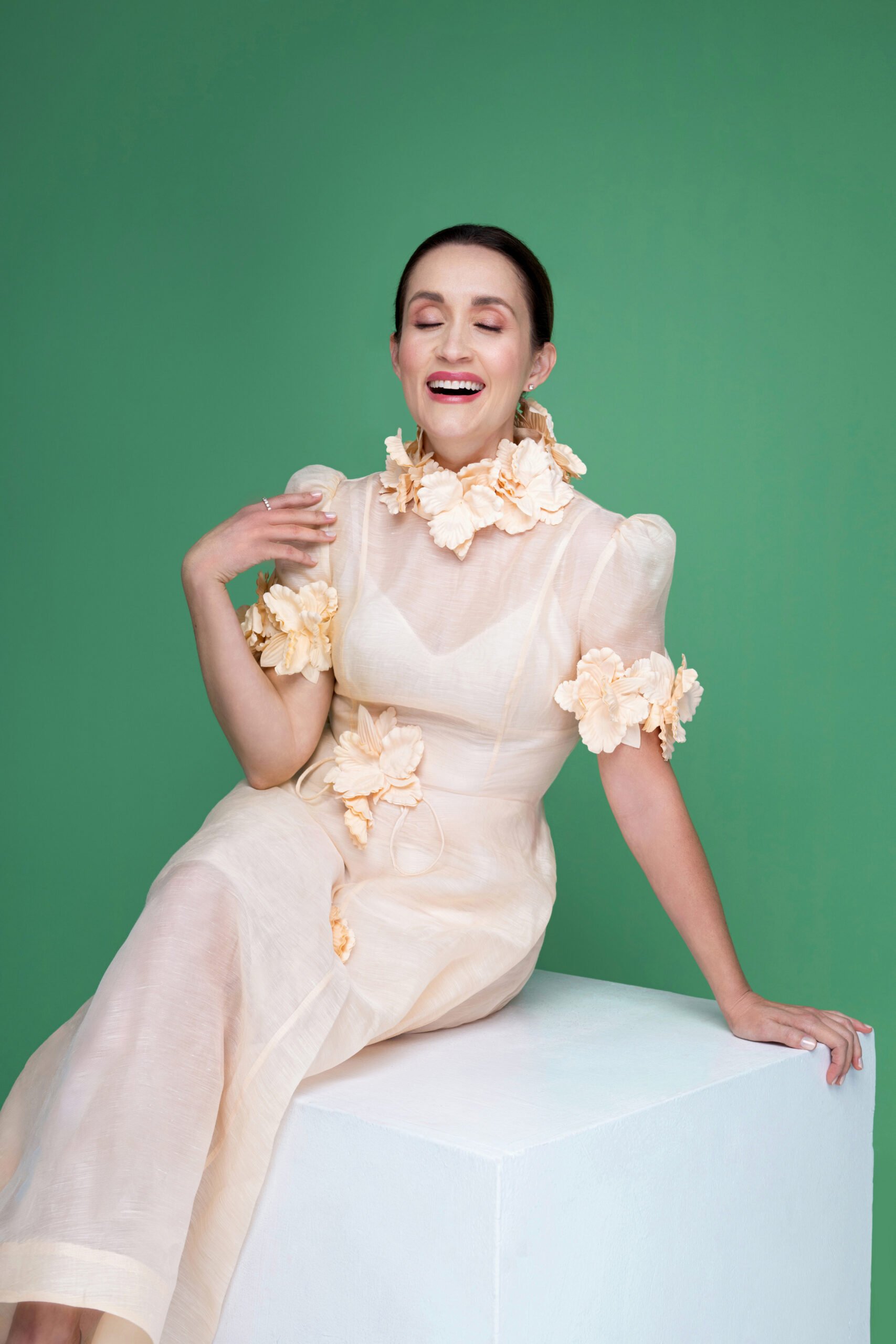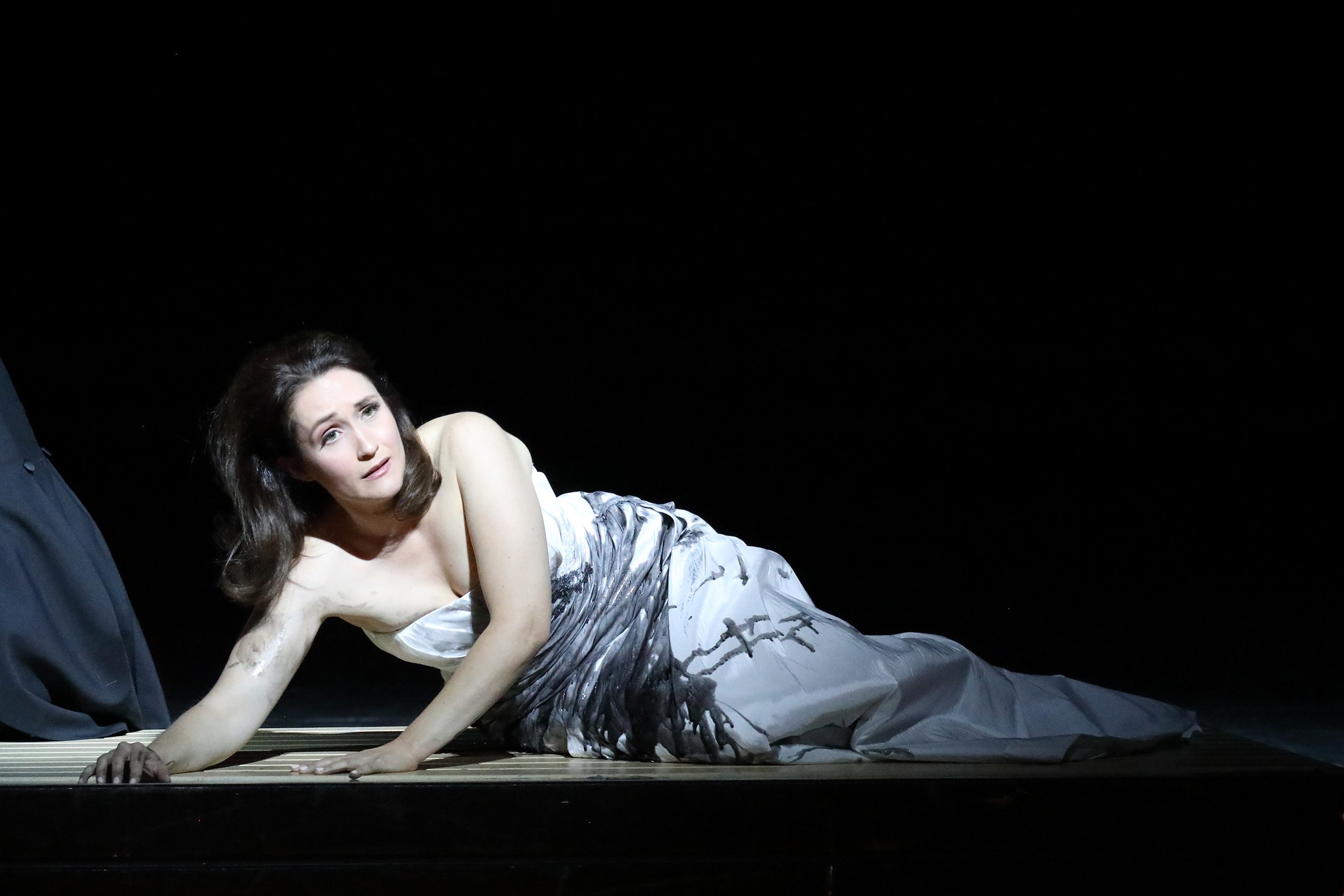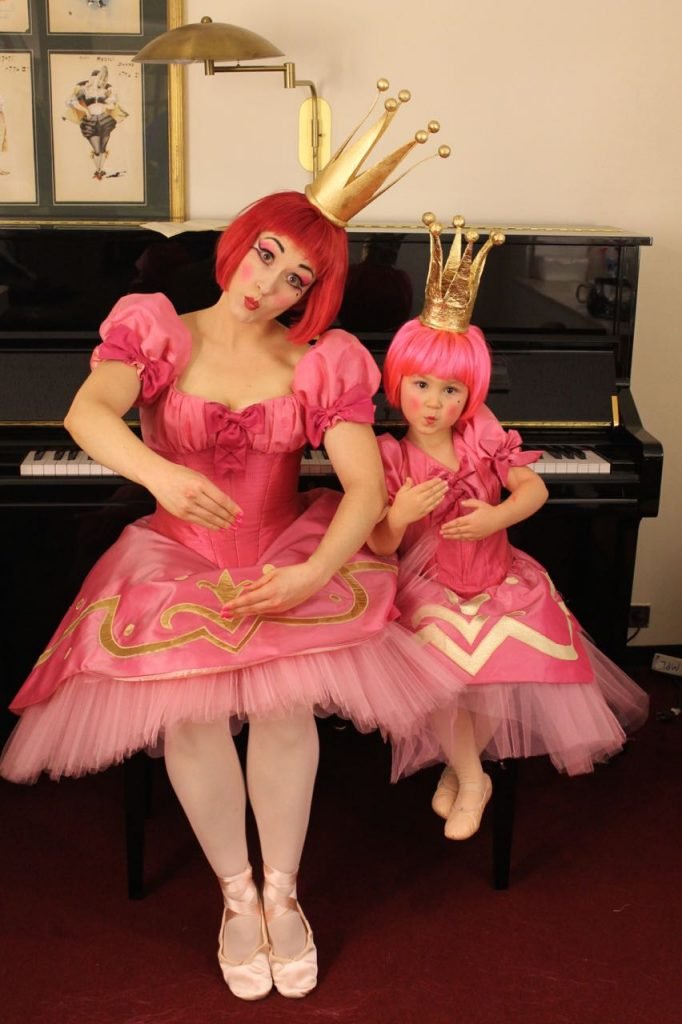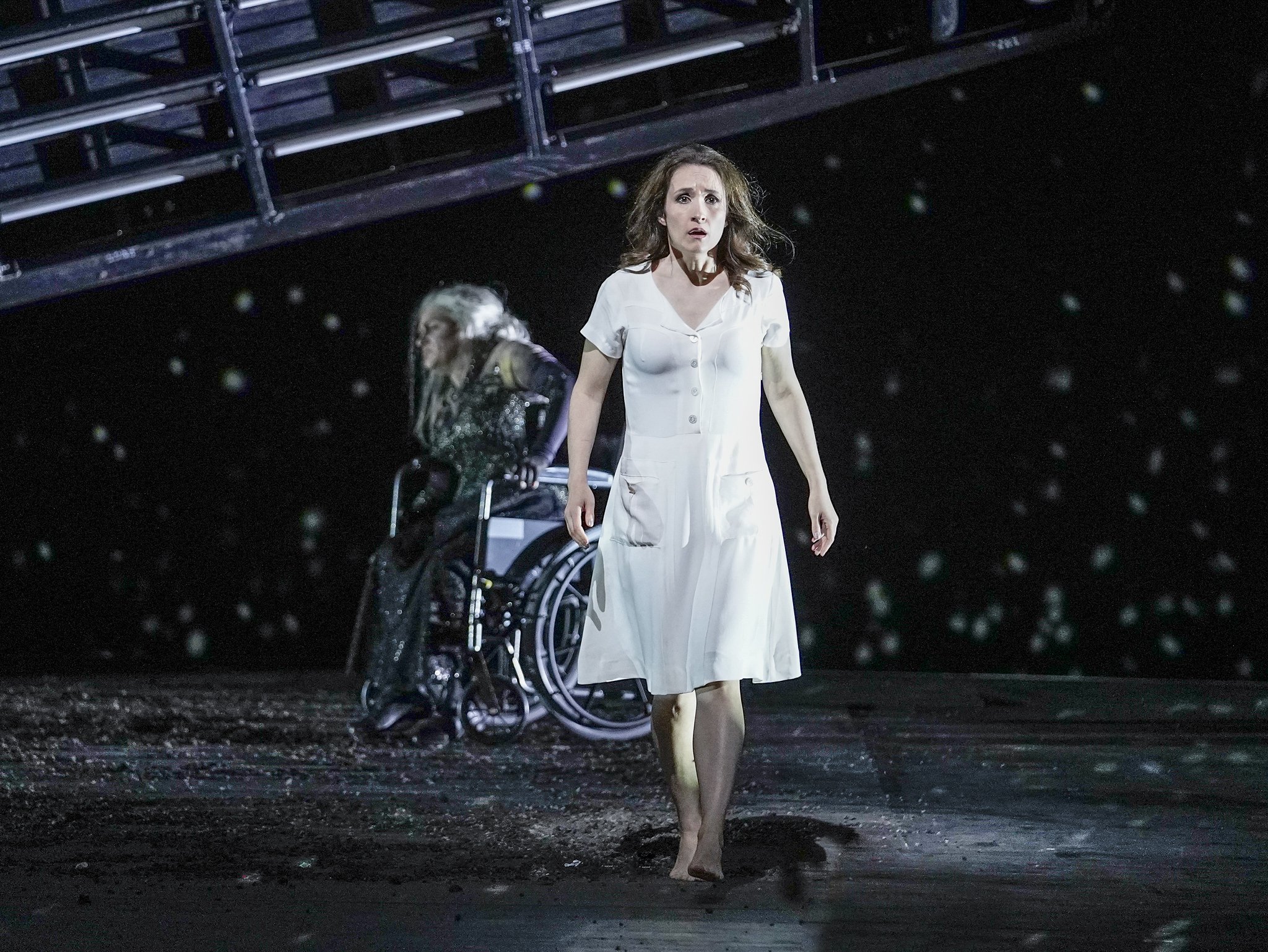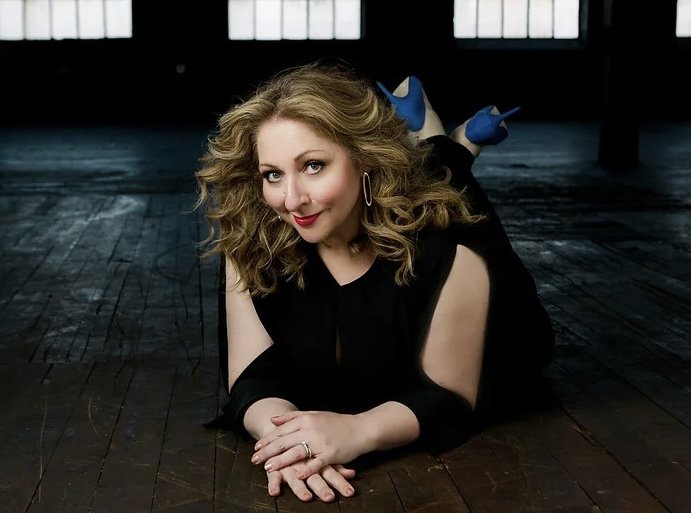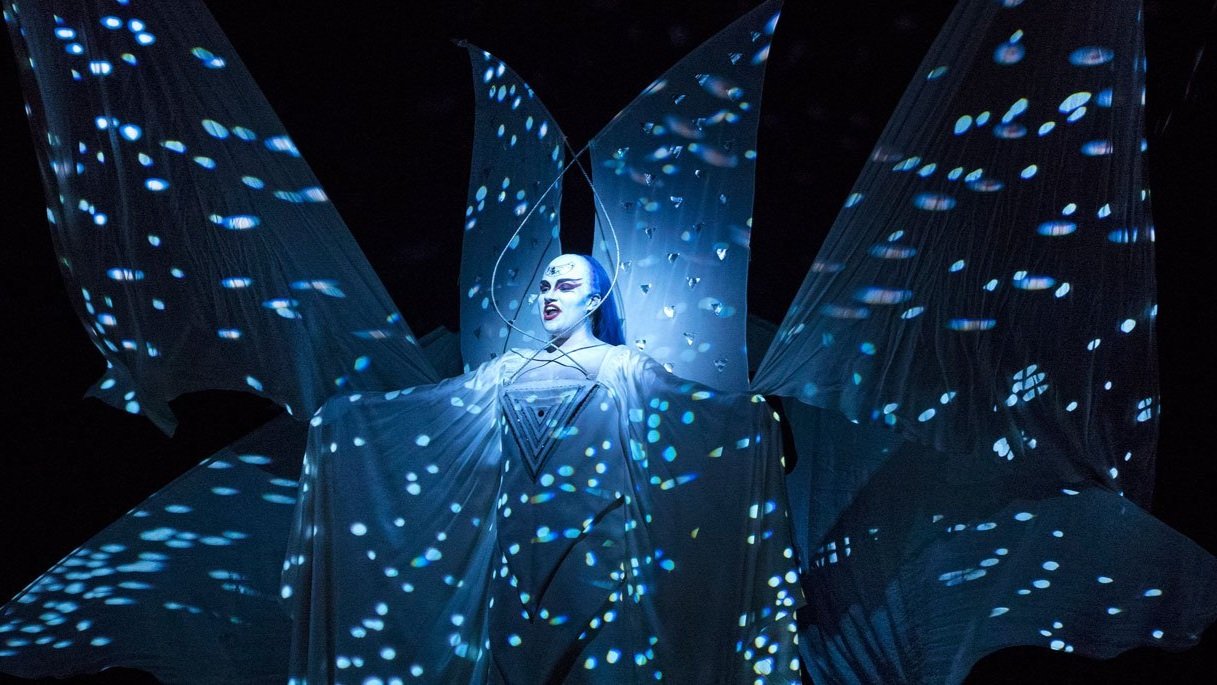An Interview With Erin Morley
Erin Morley (Chris Gonz)
Recently, internationally acclaimed coloratura soprano Erin Morley has been piling on triumph after triumph. Last spring, she sang Pamina in Simon McBurney’s production of Mozart’s Die Zauberflöte at the Met Opera, and in November, she made her debut at the Royal Opera House as Gilda in Verdi’s Rigoletto, one of her signature roles. In addition to headlining various recitals, including at the French Embassy in Washington, D.C., Erin released her first solo album this April, the floral-themed Rose in Bloom. She kindly spoke to me about her album, feminizing roles, skydiving, and more; enjoy!
Music has always been in Erin’s blood, with both her parents classical musicians. “I always loved music, was exposed to all kinds of music from a very early age, and I can't remember a time when it wasn't a huge part of my life.” Her first performance was singing in church with her big sister Aimee at “not even two years old,” and Erin started learning violin and piano at age 3 from her mother, who is a violinist. In Pennsylvania, where the family lived for the first 11 years of Erin’s life, her mother “started a chamber group called the C&B Chamber Players… [and] took me to see [the violinists] Midori, Nadja Solerno-Sonnenberg, and later Joshua Bell, and I got to meet them after performances. And I got to watch my mom herself play the great violin sonatas in recital.”
When the family moved to Utah, Erin expanded her musical education. She sang in the Salt Lake Children’s Choir, started studying violin with her mother’s first teacher, Jack Ashton, participated in youth orchestras, played violin in the annual community Messiah, and even picked up the organ. When Erin “became a good enough pianist,” she was allowed to accompany her mother in her violin recitals, but she didn’t go “from enthusiastic student to serious musician” until she was 13, when she began studying piano with the “great” Solveig Lunde Madsen. “It was such a rich musical childhood,” she sums up.
Even so, she didn’t make the move from piano to singing until just before graduating from high school, when she auditioned for music schools such as the Juilliard School, the Curtis Institute of Music, and the Eastman School of Music, all for piano. On a whim, she also gave a voice audition, despite only having been studying singing for seven or eight months. She was “totally shocked” when she was accepted to study voice instead of piano at Eastman. Her goal of double majoring in voice and piano was dashed by arm injuries after two years, so she devoted herself to singing. Thanks to rehab, though, she can still play, and how! Her piano skills got a spotlight during the Met’s pandemic-time At-Home Gala, in which she accompanied herself singing “Chacun le sait” from Donizetti’s La Fille du Regiment.
Among her favorite roles she counts Donizetti’s Lucia. “I was very proud to have sung Lucia di Lammermoor in Nancy, France. But I was doubly proud that I sang her when I was pregnant with my second child, in the first trimester. This is the most difficult trimester for me, energy is low, nausea is hard to manage, reflux is an issue.” Erin has been open about the challenges and rewards of singing while pregnant. “This role has always fascinated and terrified me. I counted it a huge victory to have sung it successfully, and was so moved by the enthusiastic response. Nobody knew I was pregnant except for my husband and that's how I wanted it. I do hope I get the chance to sing her again.”
Erin in Eurydice (Marty Sohl/Met Opera)
In 2021, Erin headlined the Met premiere of Matthew Aucoin’s Eurydice, a retelling of the Orpheus myth based on Sarah Ruhl’s play of the same name. “I still can't believe I got to do it! What a huge gift. Yes, it was enormous pressure, and extremely intense. There were some days after rehearsal when I just walked into the church across the street in Lincoln Center and sat there alone for a while. I didn't see my family much — I had to completely live inside Eurydice's world for a few months.” Fortunately, as Eurydice lives in the underworld, that was not meant literally. “Bless my husband [Yale law professor John Morley] for holding things together.”
In his book The Impossible Art, Aucoin called Erin an “adventurous soul,” which she finds funny. Given that she certified as a scuba diver in her teen years and enjoys skydiving, it doesn’t sound inaccurate. “I sort of love the adrenaline rush of performing, and I did not thrive well without it during the pandemic, so skydiving felt like a good replacement… I have also loved flying in certain productions at the Met — Rheingold, Götterdämmerung, and most recently Die Zauberflöte… Eurydice was certainly a Mount Everest for me, really it was the project of a lifetime. And Matt is extremely adventurous, always pushing the boundaries of what's possible, so maybe we were a good match!”
Erin with five Actors in Der Rosenkavalier (Ken Howard/Met Opera)
So it would seem! The next year, a live performance of Eurydice was released as an album, which went on to be nominated for a Grammy Award. Erin has a lengthy history with the Grammys. She has been part of a Grammy-winning recording, as she sang in the Met Opera DVD of Wagner’s Ring Cycle. However, because the Ring has such a big ensemble cast, the Recording Academy merely sent the Rhinemaidens a nice certificate. In 2019, the Met’s recording of R. Strauss’s Der Rosenkavalier was nominated for another Grammy, featuring Erin in the role of Sophie. “I have had such an emotional journey with Sophie. She came into my life at such a special time, and I'm fairly certain she's the reason my career started growing,” asserts Erin. Rosenkav didn’t win, but the recording of Mahler’s Eighth Symphony, in which Erin was a soloist, did win Best Choral Performance in 2022. Her 2022 recording of Meyerbeer’s Robert le Diable, in which she sang Isabelle, also scored an Oper! Award for Best Opera Recording last March. “Meyerbeer wrote so brilliantly for the voice, and has been neglected far too long. I think much of the world wants opera to be virtuosic and grand, and Meyerbeer brings all of that energy.”
Even with that recognition of her recordings, Erin only released her first solo album, Rose in Bloom, to the world this April. The music is made up of an assortment of nature songs with a focus on flowers, although there are at least seven songs about birds. Amid songs as varied as Saint-Saëns’s “Le Rossignol et la Rose,” (The Nightingale and the Rose), Brahms’s “Lerchengesang,” (Larksong) and Ivor Novello’s “We’ll Gather Lilacs,” the center of it all is the “most beautiful, heartbreaking cycle “Huit Chansons de Fleurs” (Eight Flower Songs) by Ricky Ian Gordon. That song cycle was the impetus for the whole album. “The wonderful So-Chung Shinn commissioned a song cycle from Ricky Ian Gordon, and asked me to look at it. It's about what flowers represent… how we use flowers to celebrate and to mourn, how we are moved by them as symbols of impermanent beauty and loss.”
Erin (Chris Gonz)
Erin teased her album a month before its release with the single “'Neath My Lattice Through the Night,” an aria from Arthur Sullivan’s The Rose of Persia. It is sung by Rose-in-Bloom, the Persian Sultana. The album, as you can guess, takes its name from her. The aria, in particular its stratospheric cadenza, is so ridiculously difficult that one would think that Sullivan wrote it to spite his lead, “the wonderful soprano” Ellen Beach Yaw, rather than showcase her vocal abilities. No one had ever recorded the aria in its original key with the cadenza, until Erin decided “to rectify that!” When her longtime collaborator, pianist Gerald Martin Moore, “introduced me to the aria, and I saw those high F#s, I knew it would be fun! Challenging, too... but I love a challenge!” Erin’s rendition was sensational.
“I knew the rest of the program would need to complement [“Huit Chansons de Fleurs”] but also remain in the realm of nature and gardens.” Dragonflies, swallows, and daisies all make their appearance. “I spent hours and hours with Gerald Martin Moore poring through repertoire to find the right balance on the disc. I think what we have is an exciting variety of colors and fragrances, just like a garden.” It sounds like she’s describing her own voice.
Next season, she will be back at the Met in Rigoletto and Les Contes d’Hoffmann. “I’m extremely grateful to have performed Gilda as much as I have,” she says. “Verdi roles require a lifetime of study, and I'm just grateful I've had an opportunity to grow with Gilda over the years.” Both Rigoletto and Hoffmann are productions by Tony-winning director Bartlett Sher, whom Erin appreciates for paying attention to the acoustics of the sets. “Modern directors do not often think about how their set or staging will aid the sound. I really appreciate modern directors who do pay attention to this, but far too many haven't given it a second thought, and aren't held to any standards by the administration.”
“The art form remains unamplified, and that's one of the things that makes opera special.”
Erin in Rigoletto (Wilfried Hösl/Bayerische Staatsoper)
Naïve, innocent Gilda, who falls in love with her… let’s just say seducer and sacrifices herself to save his life, is one of opera’s more controversial characters. Still, Erin doesn’t think she or any other so-called damsels in distress need solving. “I think we must play the characters as they are written and intended. We cannot turn every character into someone we'd like them to be. However, I do think many of the roles I play have been treated too delicately in the past. Sophie is outspoken and refuses an arranged marriage. Pamina [in Die Zauberflöte] becomes a fearless leader. Gilda is angry and restless and even daring. All of these women have been traumatized, too. They are victims, they are trapped, and that is so important to the story. To dismiss the victimization of these women is to ignore and devalue their pain. That's the most anti-feminist thing I could do to them.”
Erin was one of the recipients of the last-ever Opera News Awards, along with soprano Lise Davidsen and tenor George Shirley. Published by the Met Opera Guild, Opera News was once one of the world’s foremost classical music magazines. “It was a status marker — you were a singer to watch if you landed a “Sound Bite" feature,” explains Erin. She was spotlighted in that section in 2010, calling it “my first PR.” Despite its 87-year history, lack of funds forced the Guild to discontinue the publication in August. “I'm still utterly shocked by this,” says Erin. “And I'm equally shocked that nobody has taken up the mantle in their place. The U.S. needs a good opera magazine, even if it's an online publication, a place for the best musicologists and historians to educate us, and a place for smart, experienced critics to feature young singers and review established ones.” I couldn’t agree more.
When asked how else to keep opera thriving, her answer is simple and logical: “Get children into the opera house!! Family performances, bringing student groups to dress rehearsals, letting them see the costumes and instruments — all of those programs have to remain and grow.” Even with budget cuts, these programs are what will ensure opera’s prosperity in the future.
Erin and her daughter Maria twin as Olympia in Les Contes d’Hoffmann!
“I also love the children's storybooks about opera. When I did the Ring Cycle at the Met,” for the second time, now as the Woodbird in Siegfried, “Christine Goerke gave everyone in the cast the Ring comic book, one volume depicting the stories from all four operas. My daughter read it several times and was totally riveted. At the age of 8, she came to see me in Siegfried, and stayed for all 5 hours, completely thrilled. Also, my kids are obsessed with my costumes. I think one could very successfully launch a series of opera costumes for play or Halloween. I know a lot of kids who would be thrilled to dress up as the Queen of the Night for their school parade.” Me, for one.
“It is not hard to expose children to great art.”
“Of course, the responsibility lies with the opera houses and their programming and education and outreach programs, but a whole lot of the responsibility also lies with the parents. In the U.S., families are spending all their money on sports tickets and rock concerts. I love all of those things – but we ALSO need to be taking our children to see The Nutcracker, and The Magic Flute, and Don Pasquale, and The Barber of Seville, and yes, even Siegfried!” Ironically, a good ticket at the Met is hundreds of dollars cheaper than the worst NBA seat. “And if you can’t afford to do so in person, have them watch all of these programs at home or listen in the car. It is not hard to expose children to great art.”
It really is that simple.
Rose in Bloom is now available to stream wherever you get your music.


